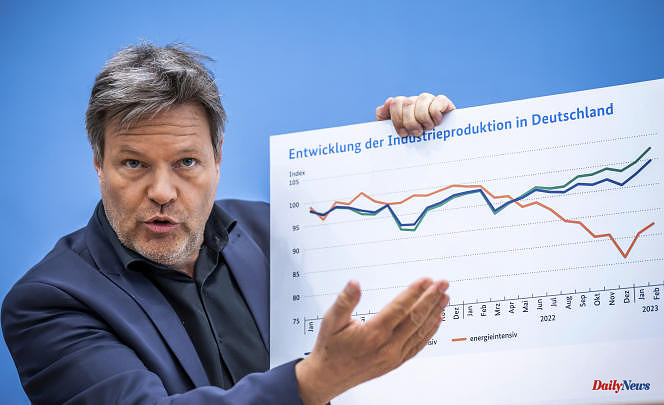On the other side of the Rhine, the dreaded economic crisis ultimately did not take place. Contrary to pessimistic forecasts for 2022, Europe's leading economy has not fallen into recession, despite the energy crisis that has hit it. It doesn't even show the technical recession - defined by two straight quarters of negative growth - that seemed inevitable in the fall. In the first quarter of 2023, the German economy simply stagnated (0%), after having shrunk by 0.4% during the fourth quarter of 2022, the German statistics office announced on Friday 28 April.
Most economists are now expecting stronger growth in the coming months. As the risk of energy shortages has disappeared with the end of winter, activity should be able to resume more calmly. The Ifo institute, which measures the morale of business leaders every month, announced on Monday April 24 a continuation of the improvement already perceptible in recent months.
The business climate index rose slightly in April, reflecting the improving outlook. On Wednesday April 26, the Minister of Economy and Climate, Robert Habeck, had already raised his growth forecasts: the government now anticipates slight growth for 2023, at 0.4%, which should continue in 2024, with 1 .6% expected. During a press conference, the Minister and Vice-Chancellor praised the "adaptability and resilience of the economy", but also welcomed the "effectiveness of the stabilization measures promoted by the government ".
Inflation weighs on household morale
Economic institutes, however, refrain from any euphoria. Admittedly, "the German economy has bottomed out, but the outlook is mixed," said the Kiel Institute for the World Economy (IFW) in an analysis released Friday morning, noting that while the industry is doing better , inflation is weighing on household morale, which is hampering a stronger recovery in growth.
“The German economy is divided at the start of the year, corroborates Timo Wollmershäuser, of Ifo. The industry is benefiting from easing supply chain disruptions as well as lower energy prices and is on a growth path, but high inflation is eroding people's purchasing power. households and consumption. »
It is also important not to forget the real effects of the energy crisis, which are long-lasting, warns Nils Jannsen of the IFW: “The slight increase in gross domestic product masks the really important effects of the energy crisis. Compared to forecasts before the start of the war in Ukraine [on February 24, 2022], which envisaged a strong recovery with the end of the restrictions linked to the [Covid-19] pandemic, economic performance is expected to be lower by about 3% [in 2023]. »












